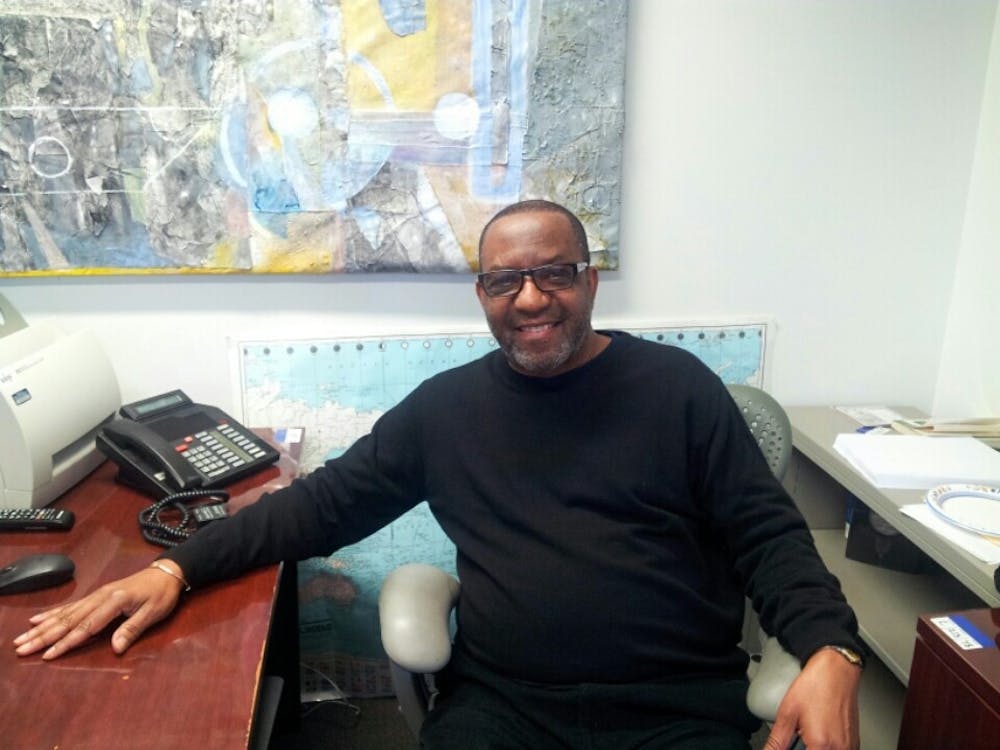Many northwest D.C. professionals within the broadcasting industry aim to further their careers by gaining national attention. But radio host Kojo Nnamdi wants to move against this trend. Instead of expanding his fame, Nnamdi focuses on his community, an aspect that contributes to his successful 17-year radio career. When talking about his community and world affairs on WAMU’s “Politics Hour,” Nnamdi refuses to hold back with his upfront commentary.
The Scene sat down with the radio host to gain insight into his lengthy career, memorable interviews and much more.
Among the many issues you’ve talked about over the years, what has been your favorite topic?
Kojo Nnamdi: “Politics. But politics at large, by which I mean worldwide and international affairs. But I also enjoy talking [about] culture, education, social relations and within that context of race relations.”
In regards to social and racial relation, there have recently been several protests in the D.C. area in support of the #BlackLivesMatter Campaign. What is your stance on the campaign?
KN: “Those campaigns make the issue of unnecessary use of force by law enforcement against people of color visible. And by making it more visible, it forces our legislative bodies and elected leaders to pay attention to it; there will be more investigations of it and there will be laws passed to try and reduce it.”
“That’s a good thing, but visibility should never be confused with grassroots activism, it should never be confused with the hard work that it takes to allow the people who are victimized by these policies to understand how to empower themselves in an oppressive environment. Long term gains and the final analysis are won by people who do long term organizing.”
You’ve interviewed quite a few people in your career, if you could choose anyone to interview again, who would it be and why?
KN: “I’m thinking of an interview I never got to conduct because as many would say, the man died— Nnamdi Azikiwe, the man who I greatly admired. He came to Washington D.C. in the 1990s. We arranged to interview him at Howard University television. On the night that I was supposed to interview him, he fell ill and never recovered. Shortly thereafter, he returned to Nigeria and died. It was one of my biggest regrets to not have the opportunity to interview a man that I admired so much that I named myself after him.”
What’s the craziest interview you’ve ever had?
KN: “It was an interview with a remarkable man who is now dead named Russell Means. He was one of the leaders of the American Indian Movement. I interviewed him in the late 1970s at Howard University Radio, and so we thought it would be a great idea to discuss what their view was of Columbus Day.”
“Now Russell was a man who didn’t have a great deal of regard for Western ceremonies, and so we should have guessed that on that Columbus Day interview, that he would show up drunk out of his skull. But he was still vocal, so we decided to proceed with the interview. We asked him the first obvious question which was, ‘What do Native Americans think about the celebration of Columbus Day?’ He began with four memorable words. He said, ‘When we discovered Columbus,’ and then he passed out live on the radio.”
For anyone wanting to break into journalism or the radio industry, what is some advice you would give them?
KN: “Three words: write, write [and] write. Regardless of how the medium may change, good writing continues to be the centerpiece of all communication. The better you write, the greater advantage you have over any competition you might have for any job because writing is adjustable. There are other factors, curiosity being one, another being specialization. But the bottom line is that you need to write.”
Follow @jenaeaddison




